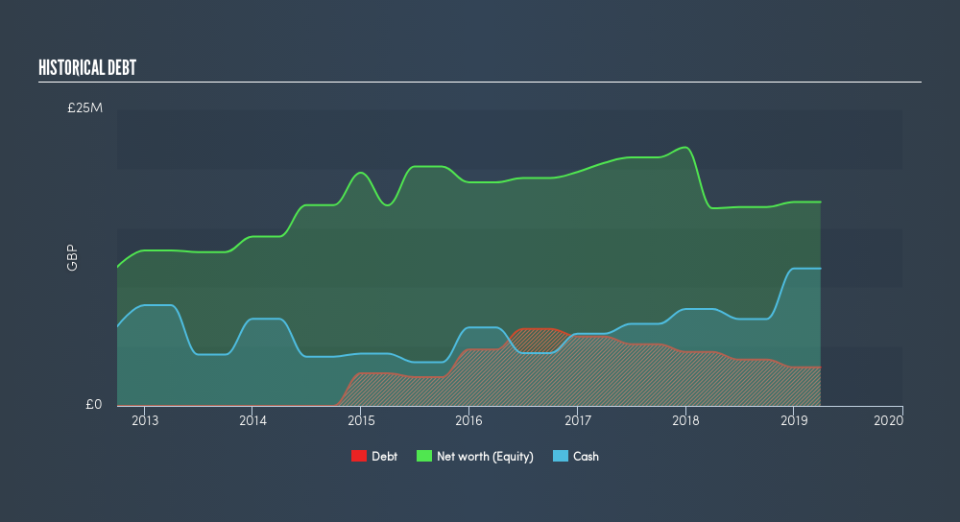Is Eckoh (LON:ECK) A Risky Investment?

Some say volatility, rather than debt, is the best way to think about risk as an investor, but Warren Buffett famously said that 'Volatility is far from synonymous with risk.' So it might be obvious that you need to consider debt, when you think about how risky any given stock is, because too much debt can sink a company. We note that Eckoh plc (LON:ECK) does have debt on its balance sheet. But the real question is whether this debt is making the company risky.
When Is Debt Dangerous?
Debt is a tool to help businesses grow, but if a business is incapable of paying off its lenders, then it exists at their mercy. Ultimately, if the company can't fulfill its legal obligations to repay debt, shareholders could walk away with nothing. However, a more frequent (but still costly) occurrence is where a company must issue shares at bargain-basement prices, permanently diluting shareholders, just to shore up its balance sheet. By replacing dilution, though, debt can be an extremely good tool for businesses that need capital to invest in growth at high rates of return. The first thing to do when considering how much debt a business uses is to look at its cash and debt together.
See our latest analysis for Eckoh
What Is Eckoh's Debt?
You can click the graphic below for the historical numbers, but it shows that Eckoh had UK£3.25m of debt in March 2019, down from UK£4.55m, one year before. But on the other hand it also has UK£11.6m in cash, leading to a UK£8.33m net cash position.
How Strong Is Eckoh's Balance Sheet?
The latest balance sheet data shows that Eckoh had liabilities of UK£21.3m due within a year, and liabilities of UK£2.45m falling due after that. Offsetting these obligations, it had cash of UK£11.6m as well as receivables valued at UK£4.87m due within 12 months. So it has liabilities totalling UK£7.28m more than its cash and near-term receivables, combined.
Of course, Eckoh has a market capitalization of UK£116.2m, so these liabilities are probably manageable. But there are sufficient liabilities that we would certainly recommend shareholders continue to monitor the balance sheet, going forward. While it does have liabilities worth noting, Eckoh also has more cash than debt, so we're pretty confident it can manage its debt safely.
On top of that, Eckoh grew its EBIT by 52% over the last twelve months, and that growth will make it easier to handle its debt. There's no doubt that we learn most about debt from the balance sheet. But ultimately the future profitability of the business will decide if Eckoh can strengthen its balance sheet over time. So if you're focused on the future you can check out this free report showing analyst profit forecasts.
But our final consideration is also important, because a company cannot pay debt with paper profits; it needs cold hard cash. While Eckoh has net cash on its balance sheet, it's still worth taking a look at its ability to convert earnings before interest and tax (EBIT) to free cash flow, to help us understand how quickly it is building (or eroding) that cash balance. Happily for any shareholders, Eckoh actually produced more free cash flow than EBIT over the last three years. That sort of strong cash conversion gets us as excited as the crowd when the beat drops at a Daft Punk concert.
Summing up
While it is always sensible to look at a company's total liabilities, it is very reassuring that Eckoh has UK£8.3m in net cash. And it impressed us with free cash flow of UK£6.3m, being 308% of its EBIT. So we don't think Eckoh's use of debt is risky. Another factor that would give us confidence in Eckoh would be if insiders have been buying shares: if you're conscious of that signal too, you can find out instantly by clicking this link.
If, after all that, you're more interested in a fast growing company with a rock-solid balance sheet, then check out our list of net cash growth stocks without delay.
We aim to bring you long-term focused research analysis driven by fundamental data. Note that our analysis may not factor in the latest price-sensitive company announcements or qualitative material.
If you spot an error that warrants correction, please contact the editor at editorial-team@simplywallst.com. This article by Simply Wall St is general in nature. It does not constitute a recommendation to buy or sell any stock, and does not take account of your objectives, or your financial situation. Simply Wall St has no position in the stocks mentioned. Thank you for reading.

